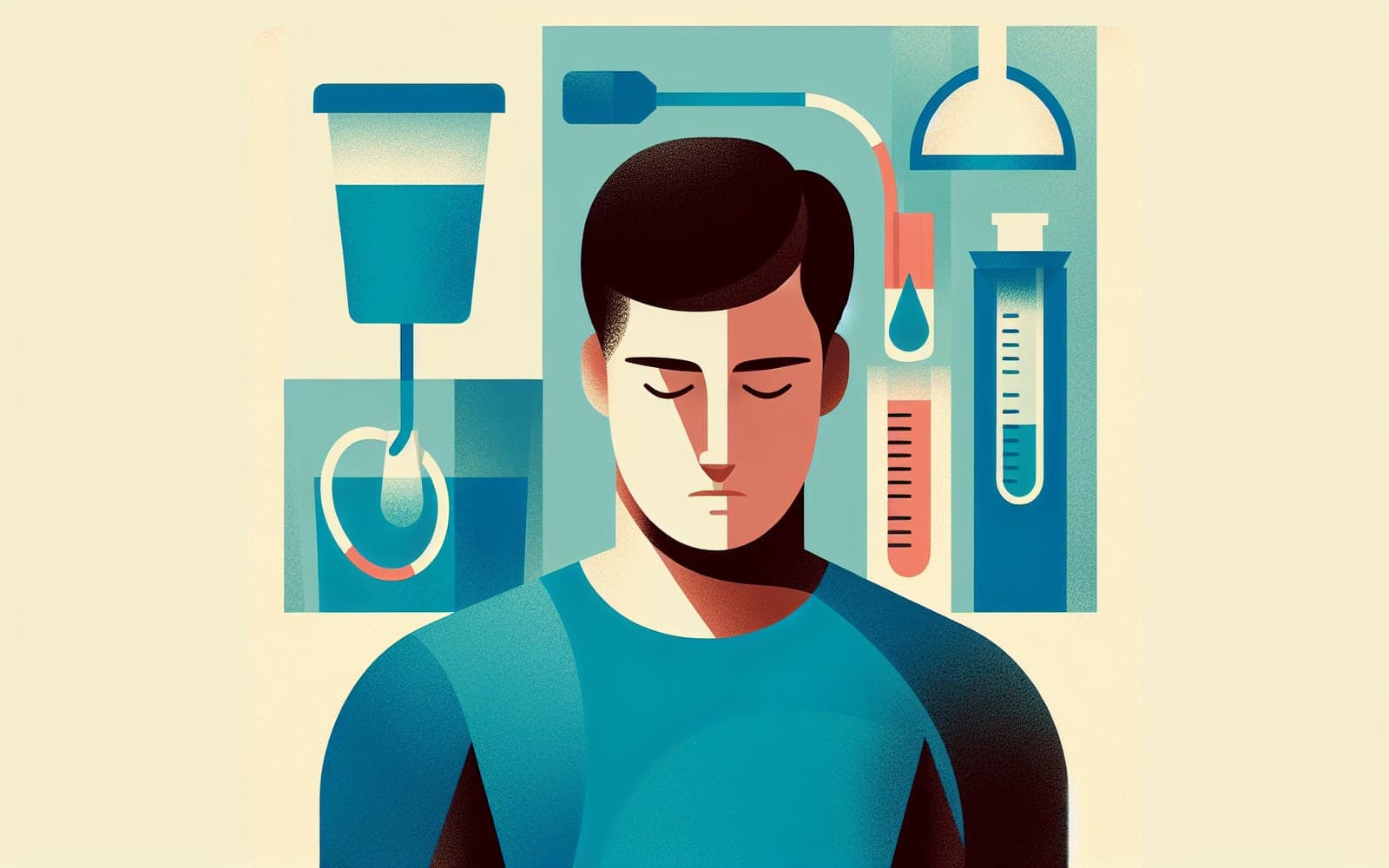How to Collect a Urine Sample for Accurate UTI Diagnosis
Published: Feb 01, 2024
Gathering a proper urine sample is key to diagnosing a urinary tract infection (UTI). Here's how you can do it right.
Contents
Preparing for the Sample
Before collecting a urine sample, it's important to clean the area around the urethra. This minimizes contamination from bacteria that naturally live on your skin. Use a non-foaming antiseptic solution to clean the area and dry it with a sterile swab. This step helps ensure that the sample truly reflects what's inside the bladder.
Collecting the Midstream Sample
The best sample is a midstream urine sample. Begin urinating into the toilet, then collect the urine midstream in a sterile container. This method reduces the likelihood of bacteria from the skin and urethra contaminating the sample, which can lead to inaccurate test results.

Storing the Sample
Once collected, the urine sample should be taken to the lab immediately. If that's not possible, keep the sample cold by placing it in a sealed bag with ice. This prevents bacterial growth in the sample, which can alter the test results.
Frequently Asked Questions
A midstream sample reduces contamination from bacteria on the skin.
Use a non-foaming antiseptic solution and dry with a sterile swab.
Keep the sample cold by storing it with ice to prevent bacterial growth.
Wrapping Up
Proper collection and storage of a urine sample are essential for accurate UTI diagnosis.
References
- Bailey RR, Little PJ. Suprapubic bladder aspiration in diagnosis of urinary tract infection. Br Med J 1969; 1:293.
- LaRocco MT, Franek J, Leibach EK, et al. Effectiveness of Preanalytic Practices on Contamination and Diagnostic Accuracy of Urine Cultures: a Laboratory Medicine Best Practices Systematic Review and Meta-analysis. Clin Microbiol Rev 2016; 29:105.
This article has been reviewed for accuracy by one of the licensed medical doctors working for Doctronic. Always discuss health information with your healthcare provider.
AI Doctor Visit Required
Appointments available 24/7
15-min consultation. No hidden costs.
AI Doctor Visit Required
For safety reasons we have been forced to end this consultation.
If you believe this is a medical emergency please call 911 or your local emergency services immediately.
If you are experiencing emotional distress, please call the the Suicide & Crisis Lifeline at 988 or your local crisis services immediately.
Contact us
You can also email us at help@doctronic.ai
We aim to reply within 5-7 days
How likely are you to recommend Doctronic to friends or family?


